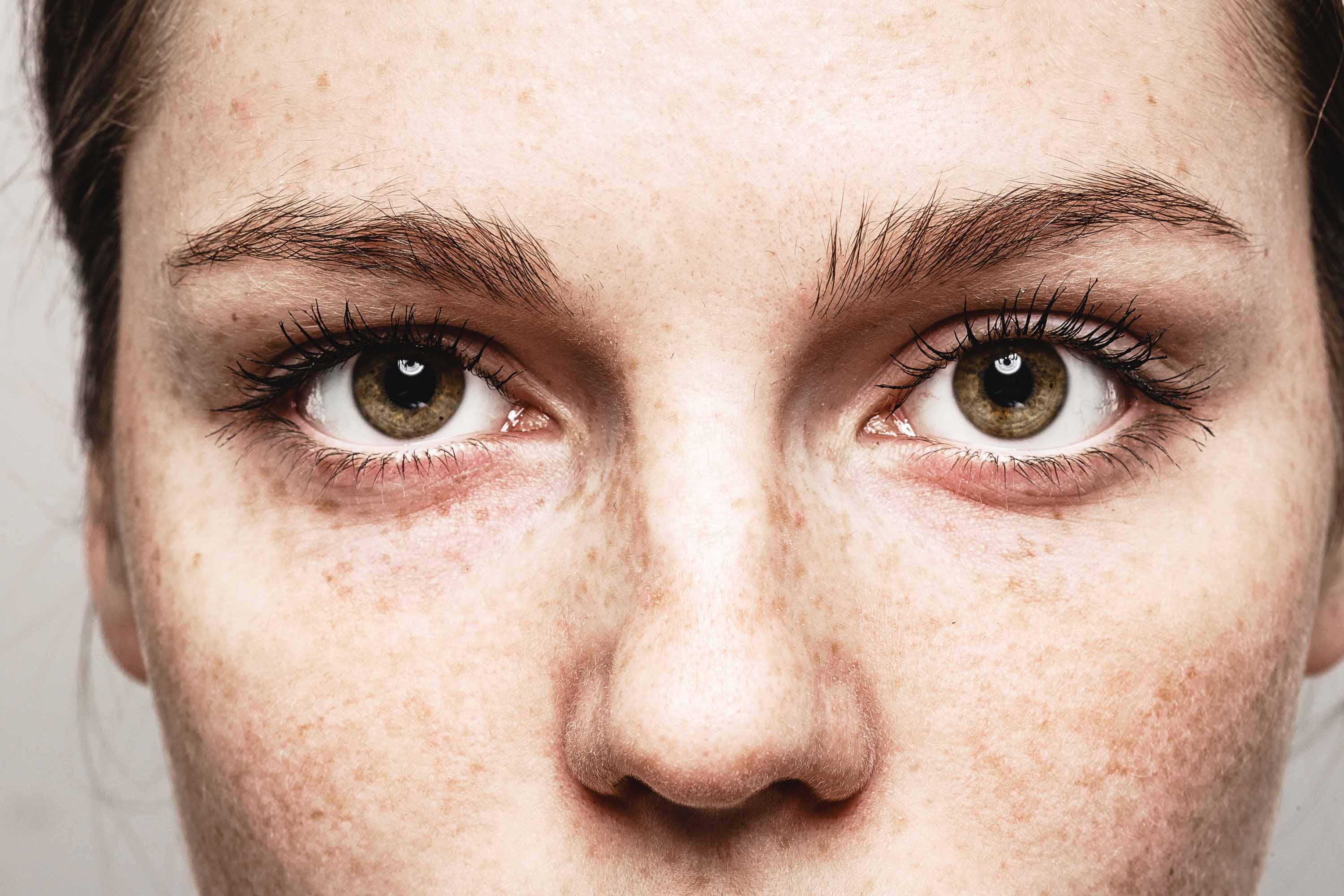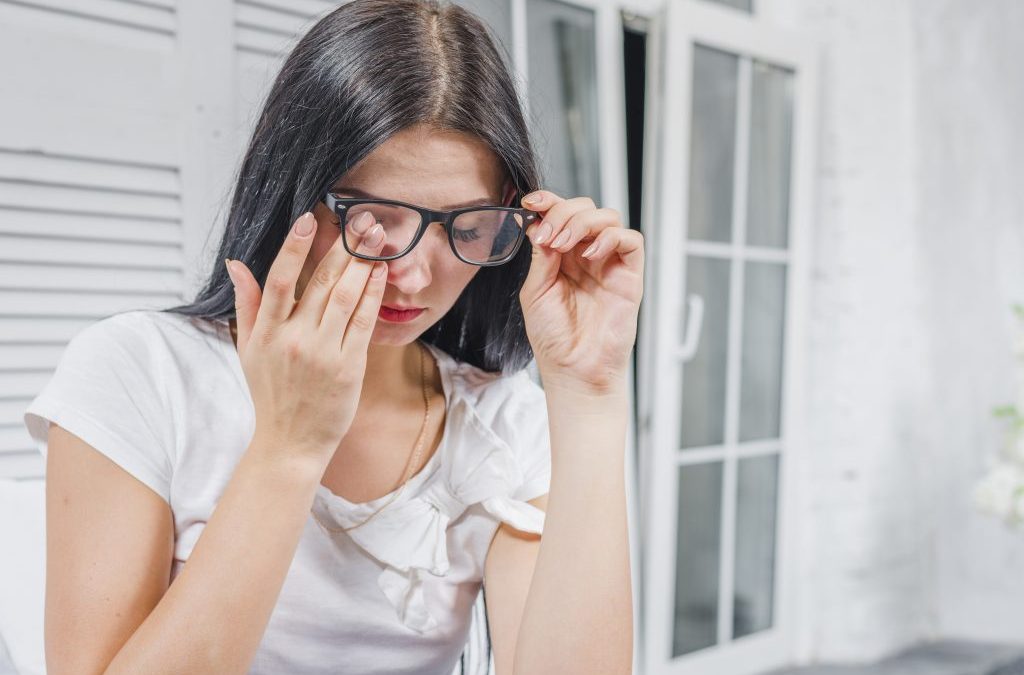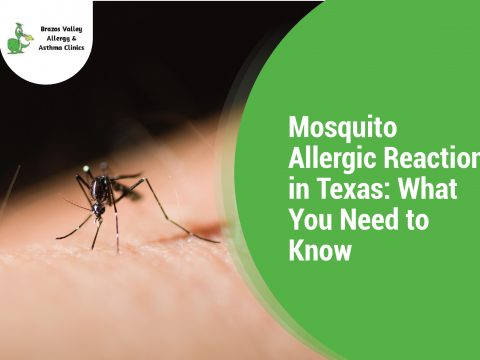- 979-485-9287
- office@bvallergy.com
-
 979-251-7804
979-251-7804
Everything You Should Know About Eye Allergy

Occupational Asthma
August 19, 2019
Is it Allergy vs. Cold? What are the Differences?
November 8, 2019Nothing is more irritating than the feeling that there is something in our eyes. It’s normal for our eyes to get watery sometimes. However, if your eyes become itchy, red, and swollen then you may be experiencing allergy conjunctivitis or ocular allergy, commonly known as eye allergies.
Eye Allergy Definition
We all hear people say that our eyes are the windows to our soul and it reflects our emotions and our state of mind. However, this will not be true if our eyes are red, swollen, watery, and itchy from an allergic reaction. Eye allergies occur when the eyes react to an allergen that causes irritation to the eyes. It would then produce a substance called histamine to fight off the allergen. This would result in the eyelids and conjunctiva—the mucous membrane that covers the front of the eye and lines the inside of the eyelids— to become red, swollen, and itchy.
Severe eye allergy symptoms can be very upsetting and can be a common reason for frequent visits to the allergist, ophthalmologist, and even the emergency room. Eye allergies can pose little threat to eyesight other than temporary blurriness. But if your symptoms don’t improve, it is better to call your doctor.
Eye Allergy Causes
Like any other allergies, eye allergies start when the immune system identifies an otherwise harmless substance as dangerous. This causes our immune system to overreact and produces antibodies that cause an allergic reaction. The reaction will then manifest around your eyes. Eye allergies are common during summer or spring because these are the seasons that have high pollen counts. However, indoor allergens such as dust mites and pet dander can also cause eye allergies all year-round.
Eye allergies are usually associated with other allergic conditions such as hay fever and atopic eczema. If you have these, then you are more susceptible to have eye allergies.

Types of Eye Allergies
There are several types of eye allergies: seasonal, perennial, vernal keratoconjunctivitis, atopic keratoconjunctivitis, contact allergic conjunctivitis, and giant papillary conjunctivitis.
- Seasonal eye allergies – These are more common and happen at certain times of the year—usually during early spring through summer and autumn.
- Perennial allergic conjunctivitis – This type of eye allergies occurs all year-round but the symptoms are milder compared to seasonal eye allergies.
- Vernal Keratoconjunctivitis – It is a more serious eye allergy than seasonal or perennial eye allergies. While it is possible for the condition to occur all year-round, the symptoms may worsen seasonally. This type of eye allergy predominantly occurs in boys or in young men.
- Atopic Keratoconjunctivitis – It affects older patients, mostly men with a history of allergic dermatitis and can also occur all-year-round.
- Contact Allergic Conjunctivitis – People who use contact lenses are more prone to have this type of allergy. Contact allergic conjunctivitis can result from irritation of wearing contact lenses. It could also be because of the proteins from tears that bind to the surface of the lens.
- Giant Papillary Conjunctivitis – It is a severe form of contact allergic conjunctivitis in which individual fluid sacs or papules, form in the upper lining of the inner eyelid which causes itching, puffiness, tearing, and blurring of the vision.
Eye Allergy Symptoms
Eye allergy also known as “allergic conjunctivitis” is a condition that affects millions of people in America. The most common eye allergy triggers are indoor or outdoor allergens such as pollen, dust mites, feathers or pet dander. Irritants such as dirt, cigarette smoke, make ups, perfumes or other chemicals, an allergy to contact lenses called giant papillary conjunctivitis resulting to these eye allergy symptoms:
- red, irrated eyes in your inner eyelid or in the white of your eye
- itching
- bluured vision
- burning sensation or pain
- sensitivity to light
- tearing
You may start to have these eye allergy symptoms as soon as your eyes have a contact with theses allergens. The best approach in controlling your eye allergy symptoms is to avoid the allergens you are sensitive to, causing your eye allergy.
Eye Allergy Management
Eye allergies share symptoms with other eye conditions so it is important to have an accurate diagnosis. Immediately consult an allergist or ophthalmologist who can review your medical history and symptoms. Your allergist may conduct some tests in order to pinpoint or reveal if you really have an allergy and if so, what causes it.
The golden rule when it comes to managing allergies is to avoid the allergens that trigger your symptoms. As much as possible, stay indoors when pollen counts are at their highest—usually during the midmorning and early evening. Wear glasses or sunglasses when going out to minimize the amount of pollen getting into your eyes. If something is caught in your eyes, don’t try to rub them. This will only irritate and make your condition worse.
When staying inside your house, make sure to keep your windows closed, and use air conditioning. Clean your pillows, comforters, and mattresses to reduce the accumulation of dust in your bedroom. You can also use a dehumidifier to keep the humidity low and eliminate the musty odor in your house. If you have pets, wash your hands after petting them. If possible, keep it outside your bedroom so you will not have a lot of exposure to pet dander while you sleep.
Eye Allergy Treatment

There are certain eye allergy medication that you can avail when you get allergic reactions. Nonprescription or over-the-counter eyedrops and oral medications are commonly for the short-term relief of some symptoms. You can buy artificial tear drops to help relieve eye allergies temporarily and take decongestants to reduce the redness in the eyes. Oral antihistamines may also help relieve itchy eyes. If symptoms do not become better even with eye drops or medicine, immunotherapy may be an option. In immunotherapy, you get shots containing tiny amounts of the allergen and the dose gradually increases so that your body becomes immune to the allergies.
Eye Allergy Home Remedies
Here are some reliable home remedies that you can use to treat itchy and irritated eyes. Always make sure to see a doctor if symptoms become severe enough to affect your day-to-day life.
- Eye Drops – Over-the-counter eye drops for itch relief are always helpful. Some are designed for allergies and redness, while others work like artificial tears for dryness. The best types are preservative free. Some help all these conditions in addition to itching.
- Cold Compress – A cold-water compress can relive the itch and have a soothing effect on your eyes. Simply take a clean cloth, soak it in cold water, and apply to closed itchy eyes, repeating as often as needed.
- Cucumber Slices – Packed with soothing antioxidants, cucumber slices are a classic remedy for eye irritation and inflammation.
- Tea Bags – Tea contains tannic acid that can help soothe itchy eyes.
- Stay Hydrated – If your eyes are irritated, your vision is blurry, or it feels like there is something in your eye, you may be experiencing symptoms of dry eye. And the best treatment for dry eyes is hydration! Make sure you’re drinking plenty of water throughout the day to keep your eyes well hydrated and support your general health.
- Castor Oil – Castor oil can help reduce dry eye by improving lipid production and inhibiting tear evaporation, as well as reducing redness and irritation.
- Potatoes – Potatoes have an astringent effect that can help reduce eye inflammation.
It is important to note that most of the allergens that trigger eye allergies are airborne, so you can’t always avoid them. That is why it is important that you visit a doctor who can diagnose your condition and determine the right treatment for you. Brazos Valley Allergy & Asthma Clinics is located in the south-central Texas region and provides professional allergy, asthma, and immunology services to clients at numerous locations in Bastrop, Brenham, College Station, Columbus, Giddings, and La Grange. Visit one of their clinics to learn more about eye allergies and how to find relief.
References:
American College of Allergy, Asthma, and Immunology
MedicineNet
American Academy of Allergy Asthma & Immunology
American Academy of Ophthalmology




